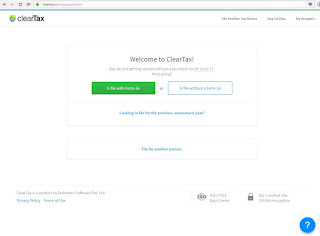India as a country always has an appetite for investing in
gold. Although gold is seen as an investment option, people preference stays
with ornament gold and at times they prefer investing in gold bars. The
disadvantages which linger around such investment are:
- A sense of fear attached to holding physical gold due to security reasons
- The money invested does not earn any income and lies idle
- Additional amount spent on “Locker charges” for safeguarding the physical gold
- Additional spent on purchase of ornamental gold like “Making” & “Wastage” charges
- At the time of liquidation, we may lose some amount due to depreciation value (In case of ornamental gold)
There is still an option to invest in gold smartly negating
all the above highlighted pointers. India’s finance ministry has come out with
the subscription for “Sovereign Gold Bond”
4th Tranche for FY 2016-17(series – 1). The subscription
period is from 18th July to 22nd July. Key features of
the scheme are:
Minimum Subscription: 1 gram
Maximum Subscription: 500 grams
Bond denomination: 1,2,5,10,50,100 grams
Rate of Interest: Fixed rate of interest at 2.75% on the
initial amount invested
Forms of Gold Bonds: Certificate holding & De-mat format
Redemption Price: The price is fixed at the price of gold of
999 purity as published by the Indian Bullion and Jewellers Association Limited
of previous week
Issuance Date: The bond shall be issued at 5th
Aug 2016
Premature Redemption: This facility can be availed after 5
years
Where to Buy: Scheduled Commercial Banks, designated post
office & Stock Holding Corporation of India Ltd
Commission Charges: One rupee per hundred of the total value
of subscription
Tax Benefits: Capital gains tax arising on redemption to an
individual is exempted
Tradability: The date of commencement of trading in respect
of Bonds issued will be notified by RBI
Additional benefits to the country:
- The amount invested in gold is in the form of certificate or De-mat format which is tradable. As the amount invested is not lying idle, it increases the money flow
- Gold is the 2nd highest imported product in India. If more gold is purchased through bonds, then it leads to reduction in imports this will reduce our trade deficit
- Trade balance leads to Rupee value being appreciated
Refer to the link for more details : Sovereign Gold Bond Scheme
National Toll free number : 1800 1800000
The physical gold which we purchase, lead to larger impact
to our economy. Next time when you set out to purchase gold make it a balanced
one. Only need based investment can be in ornamental form. Any amount
channelized towards gold in the form of investment can be through Gold bonds.
THINK WISELY, INVEST RESPONSIBLY, LIVE HAPPILY!!!



